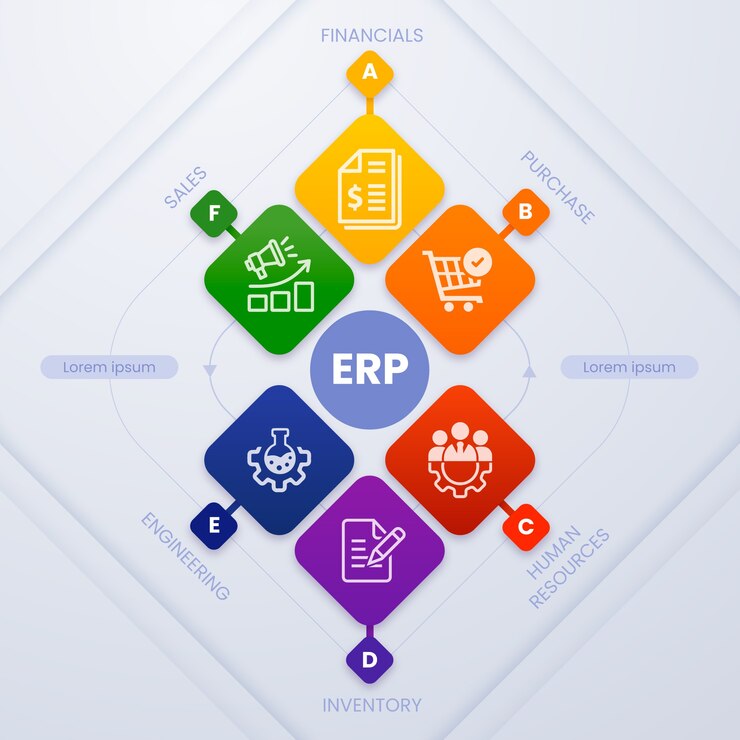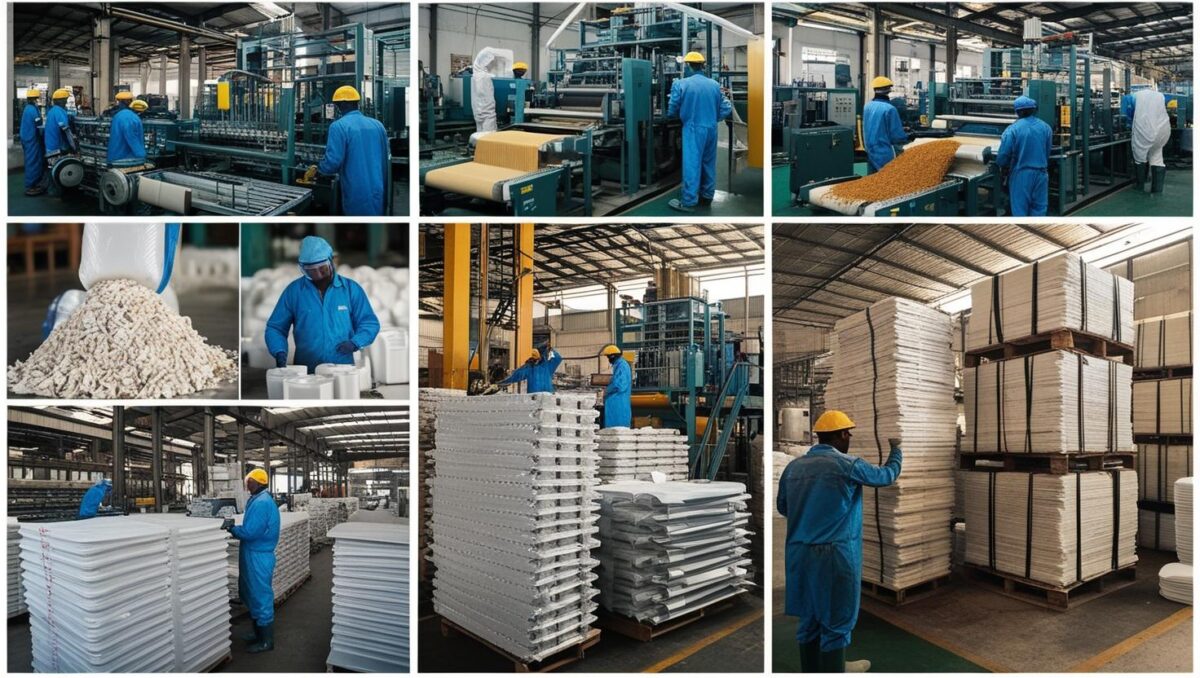Introduction: The ERP Revolution in UAE
In the heart of the Middle East’s commercial hub, ERP systems are rewriting the rules of business operations. The UAE’s dynamic economy, with its unique regulatory landscape and multicultural workforce, demands specialized ERP system in UAE solutions that go beyond standard offerings. This definitive guide explores how leading ERP system examples are helping UAE businesses achieve unprecedented efficiency while maintaining full compliance with local regulations.
Understanding ERP Systems: The Business Nervous System
What Exactly is an ERP System?
An Enterprise Resource Planning (ERP) system serves as the central nervous system of modern businesses, integrating:
- Financial operations (accounting, budgeting, treasury)
- Supply chain management (procurement, inventory, logistics)
- Human capital (payroll, benefits, talent management)
- Customer relationships (CRM, sales automation)
- Business intelligence (analytics, forecasting)
The Evolution of ERP Technology
From 1990s monolithic systems to today’s AI-powered platforms, ERP solutions have undergone radical transformation:
- Legacy Systems (1990s) – On-premise, department-specific
- Integrated ERP (2000s) – Cross-functional solutions
- Cloud ERP (2010s) – Mobile, scalable platforms
- Intelligent ERP (2020s) – AI-driven, predictive capabilities
ERP System in UAE: Meeting Local Business Demands
The UAE’s unique business environment requires ERP system in UAE solutions with specialized capabilities:
Critical UAE-Specific Features
✔ VAT Compliance Engine – Automated calculations and FTA reporting
✔ WPS Integration – Seamless Wage Protection System connectivity
✔ Bilingual Capabilities – Arabic/English interfaces and reporting
✔ Multi-Currency Support – Handling AED, USD, EUR transactions
✔ Local Data Hosting – Compliance with UAE data sovereignty laws
Industry-Specific ERP Needs in UAE
| Industry | Key ERP Requirements |
|---|---|
| Construction | Project costing, equipment management |
| Healthcare | Patient records, billing compliance |
| Education | Student lifecycle management |
| Logistics | Fleet management, customs integration |
| Hospitality | Seasonality planning, guest management |
ERP System Examples: Leading Solutions Transforming UAE Businesses
1. SAP S/4HANA (The Enterprise Powerhouse)
- Key Strength: Real-time analytics
- UAE Advantage: Dubai Smart Government certified
- Implementation Time: 6-12 months
- Ideal For: Large enterprises with complex operations
2. Oracle Fusion Cloud ERP (The Complete Suite)
- Key Strength: End-to-end business visibility
- UAE Advantage: Pre-built VAT compliance
- Implementation Time: 4-9 months
- Ideal For: MNCs and growing mid-market firms
3. Microsoft Dynamics 365 (The Productivity Booster)
- Key Strength: Office 365 integration
- UAE Advantage: Strong local partner ecosystem
- Implementation Time: 3-6 months
- Ideal For: Microsoft-centric organizations
4. Odoo (The Agile Performer)
- Key Strength: Modular affordability
- UAE Advantage: Arabic language support
- Implementation Time: 2-4 months
- Ideal For: SMEs and startups
5. Zoho One (The All-in-Wonder)
- Key Strength: Unified business apps
- UAE Advantage: Local data centers
- Implementation Time: 1-3 months
- Ideal For: Tech-forward small businesses
Implementing ERP in UAE: A Strategic Roadmap
Phase 1: Discovery & Planning (6-8 Weeks)
- Business process mapping
- Gap analysis
- ROI projections
- Vendor shortlisting
Phase 2: Solution Design (4-6 Weeks)
- System architecture
- Data migration strategy
- Integration planning
- Customization requirements
Phase 3: Deployment (12-16 Weeks)
- Configuration
- Data migration
- User acceptance testing
- Training programs
Phase 4: Optimization (Ongoing)
- Performance tuning
- Advanced feature rollout
- Continuous improvement
The Future of ERP in UAE: 2025 and Beyond
1. AI-Powered Predictive Operations
- Demand forecasting
- Automated replenishment
- Intelligent cash flow management
2. Blockchain-Enabled Processes
- Smart contract execution
- Tamper-proof audit trails
- Enhanced supply chain transparency
3. Extended Reality (XR) Interfaces
- AR-assisted warehouse operations
- VR-based training simulations
- Mixed reality maintenance support
4. Autonomous ERP Systems
- Self-correcting processes
- Automated compliance updates
- Continuous optimization
Conclusion: Embracing the ERP Advantage in UAE
Implementing the right ERP system in UAE delivers transformative benefits:
✓ 50-70% improvement in operational efficiency
✓ 30-50% reduction in administrative costs
✓ 100% compliance with evolving UAE regulations
✓ Real-time decision-making capabilities
The ERP system examples highlighted demonstrate how UAE businesses across sectors are leveraging these powerful platforms to future-proof their operations while maintaining competitive advantage in the region’s dynamic market.
FAQs About ERP Systems in UAE
1. How does ERP software handle UAE VAT compliance?
Modern ERP systems automatically calculate VAT at 5%, generate FTA-compliant reports, and maintain detailed audit trails for seven years as required by UAE law.
2. What’s the typical implementation cost for mid-sized companies?
Most mid-market implementations range between AED 200,000 to AED 500,000 including software, customization, and training.
3. Can ERP systems integrate with UAE’s WPS?
Yes, leading solutions like SAP and Oracle offer direct integration with the Wage Protection System for automated salary transfers.
4. How long does data migration typically take?
Data migration usually requires 4-8 weeks depending on data volume and complexity, with historical data often archived rather than migrated.
5. What post-implementation support is available locally?
All major vendors have UAE-based support teams offering 24/7 assistance in Arabic and English, with average response times under 4 hours for critical issues.





